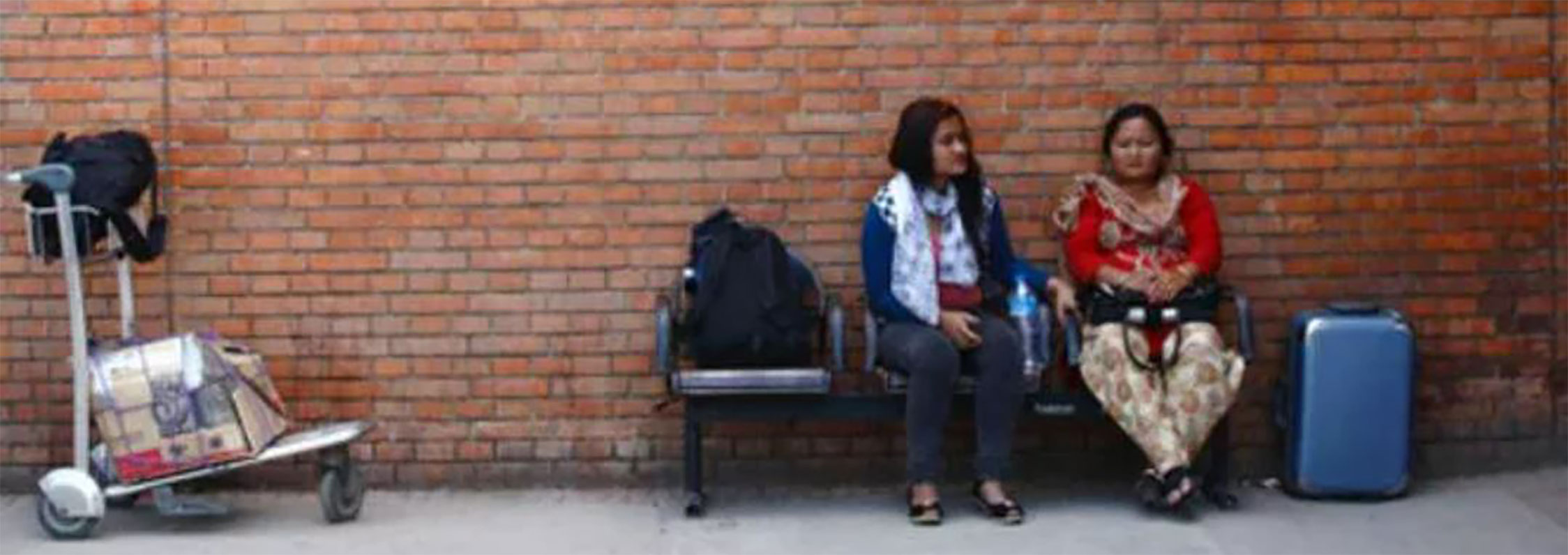About the project
The project aim is to investigate the deaths of Nepalese migrant domestic workers in their labour relations, examining the consequences of government policies and practices on the families of deceased labourers.

Project objectives:
- To map multifaceted causes contributing to deaths of Nepalese migrant domestic workers in their workplace.
- To analyse the impacts of exclusionary policies and practices aimed at supporting migrant workers and their families after deaths.
Funder:
- Brunel University of London - BRIEF Award ('BRUNEL RESEARCH INITIATIVE AND ENTERPRISE FUND')
Project Lead
- Ayushman Bhagat, Brunel University of London, Lecturer in Political Geography:
Collaborative Partner:
Background:
The government of Nepal estimates that each day two to three dead bodies return home to Nepal from other countries (Pradhan et. al., 2019). Whilst causes of death include workplace accidents, traffic accidents, suicides, murders, etc., deaths are often categorised as "natural causes" without undergoing adequate investigation, resulting in the denial of compensation to bereaved families. In response, countries like Nepal have implemented measures to protect their migrant workers. These measures include (a) regulating the recruitment industry (Kern and Müller-Böker, 2015), (b) imposing migration bans in domestic work (Bhagat, 2022), (c) providing safe migration training before the migrant worker leaves (Konrad, 2019), and (d) assuring compensation in case of fatalities through welfare boards and insurance services (Paoletti et al., 2014).
However, concerns have been raised by Nepalese NGOs and activists regarding the accessibility of provisions like compensation, as the existing framework primarily benefits "formal" migrant workers who are registered with the government and pay welfare taxes. This excludes many citizens of Nepal, primarily domestic workers, who are forced to migrate via irregular channels as a result of the migration bans in Nepal (Bhagat, 2023). In such cases, family members face tremendous challenges in obtaining the support, compensation, and justice they rightfully deserve. Hence, there is an immediate need to comprehend the immense hardships endured by the families following workplace deaths.
This project is dedicated to question exclusionary policies and practices, ensuring justice prevails in the face of workplace deaths. It aims to foster transformative dialogues between stakeholders. Furthermore, this research has the potential to furnish anti-trafficking and migration organisations with evidence, empowering them to advocate for the equitable treatment of irregular migrants. This research holds significance not only for policymakers and activists dedicated to advancing the cause of decent work, but also for the limited critical geography literature concerning deaths of migrant workers in their labour relations.
Research Methodology:
This pilot research project adopts a qualitative approach to gain insights into Nepalese migrant domestic workers workplace deaths and their consequences. It actively involves stakeholders in the research process, ensuring their voices, perspectives, and lived experiences are central to the analysis and decision-making. We aim to engage with family members, and key stakeholders to provide valuable insights into the challenges, gaps, and exclusions within policies designed to support affected migrant workers and their families.
- Semi Structured Interviews with Family Members of deceased domestic workers:
- Stakeholders Identification and Interviews
- Information dissemination meeting with participants and stakeholders
Related Projects:
Latest publication: